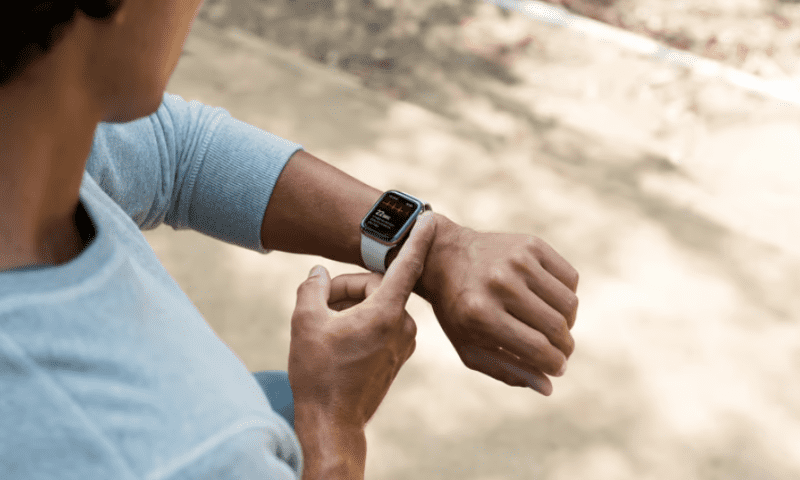Hot on the heels of a major win for Apple in its patent dispute with fellow wearable device maker AliveCor, the tech giant has hit a roadblock.
The U.S. International Trade Commission (ITC) ruled last week that the FDA-cleared electrocardiogram technology built into recent models of Apple’s eponymous smartwatch violates patents previously filed by AliveCor. The latter company—which, like Apple, is headquartered in Silicon Valley—makes artificial-intelligence-powered personal ECG monitors such as the FDA-cleared KardiaMobile portable device.
The ruling stems from a complaint AliveCor filed in 2021 and doubles down on the initial determination finding issued in June by an administrative law judge at the ITC, who determined that Apple had violated two of AliveCor’s patents. After that finding, the companies filed further petitions before the issue was put to a vote by the full ITC this month.
In a company release sent to Fierce Medtech, AliveCor CEO Priya Abani characterized the ITC’s decision as “a win for innovation and consumer choice.”
“The ruling underscores the importance of upholding intellectual property rights for companies like AliveCor and scores of others whose innovations are at risk of being suppressed by a Goliath like Apple,” Abani continued. “We look forward to continuing to build and innovate on our cardiac solutions to improve people’s lives.”
The determination that the ECG-equipped Apple Watches—spanning from 2018’s Series 4 model to the recently introduced Series 8—violate AliveCor patents comes with a limited exclusion order and a cease-and-desist order for Apple. If enforced, those orders would ban the tech maker from further imports of the ECG technology as it currently stands.
The commission also set a bond of $2 for each patent-infringing device imported or sold in the 60 days after the ruling, during which time the decision has been sent to President Joe Biden for review. Presidents have the power to veto a potential import ban but they rarely do, according to Reuters. Apple would be able to appeal the ban in federal appeals court after the presidential review period ends Feb. 12.
Still, the ITC has suspended the actual enforcement of any of the punitive actions as the companies await a final decision in a related case from the Patent Trial and Appeal Board (PTAB) of the U.S. Patent and Trademark Office.
“At Apple, our teams work tirelessly to create the best products and services in the world, with technology that empowers users with industry-leading health, wellness and safety features. While we firmly disagree with the ITC’s decision today, we are pleased that the exclusion order has been put on pause, consistent with past precedent. The patents on which AliveCor’s case rest have been found invalid, and for that reason, we should ultimately prevail in this matter,” Apple said in a statement sent to Fierce Medtech.
In contrast to the ITC, the PTAB reached a verdict in Apple’s favor earlier this month. The board ruled that all three of the claims at the center of AliveCor’s challenge were in fact “unpatentable,” concluding that anyone “of ordinary skill in the art” of cardiac monitoring could’ve developed the same portable ECG tech.
Those findings—that AliveCor’s technology is “too obvious” to be patented, and therefore its patents are invalid—could throw the company’s win with the ITC into jeopardy, since the patents are the basis for the ITC ruling.
Following the PTAB’s Dec. 6 ruling, AliveCor immediately vowed to appeal the decision; the ITC is waiting for the entire appeals process in that case to conclude before moving forward with enforcing its proposed import ban on affected Apple Watches.
Meanwhile, AliveCor is also pursuing a separate lawsuit accusing Apple of engaging in anticompetitive behavior. The company said in last week’s release that it’s expecting to see that case go to trial in early 2024.

